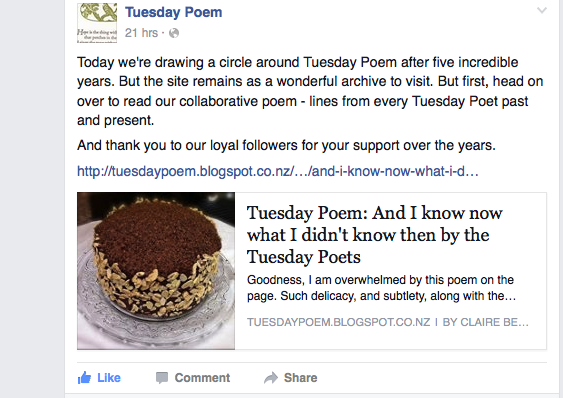Whangarei Sculpture Walkway (by carpark of Te Matau o Pohe, Port Road, Whangarei
Yesterday Michael and I drove up to Whangarei with our dog Molly for the blessing of a sculpture. Thanks to Creative Northland, my poem, ‘Drift’,’ has been transformed into a steel sculpture by Miriam Von Mulert and the local firm, Culham Engineering.
It was such a lovely occasion. A small group of people gathered to contribute the blessing including my step sister, Kerry.
Andre Hemara from Whangarei District Council blessed the piece and made his mihi nui.
The Mayor, Sheryl Mai, and Deputy Mayor, Sharon Morgan spoke. When I think of Mayors I picture a legacy of men in suits at a distance (Bob Harvey a different case altogether) but to see these two women in cotton dresses speaking with such warmth and empathy I elt like it was West Auckland before the Super City.
I spoke and Miriam spoke and the very lovely Hinu from Creative Northland spoke.
We then shared water, tea and heavenly Christmas mince pies.
I loved the poetic possibilities of the work. The way it folded to seem like the empty page or a billowing sail or a blank canvas, The way it was both anchored and ready to drift like the young girl who left Whangarei at eighteen. When I first left school, having failed to some degree, and with no idea how to be or where to be in the world, I enrolled in night school and learnt Te Reo. I learnt to acknowledge my mountain and my river. When I set sail into the unknown of the world, I took this anchor with me. The poem became my mihi from the seventeen year old to the present me. There is a strong line tethering us.
Andre blessing the piece.
The Mayor and Deputy Mayor made beautiful speeches. The Mayor said she would like to see more poetry on the walkway.
Miriam
With Kerry.
The Mayor holds me up.
Andre sampling the excellent mince pies.
Hinu and Michael
Miriam and I
The engineer
A warm thank you to everyone who made this possible.





































